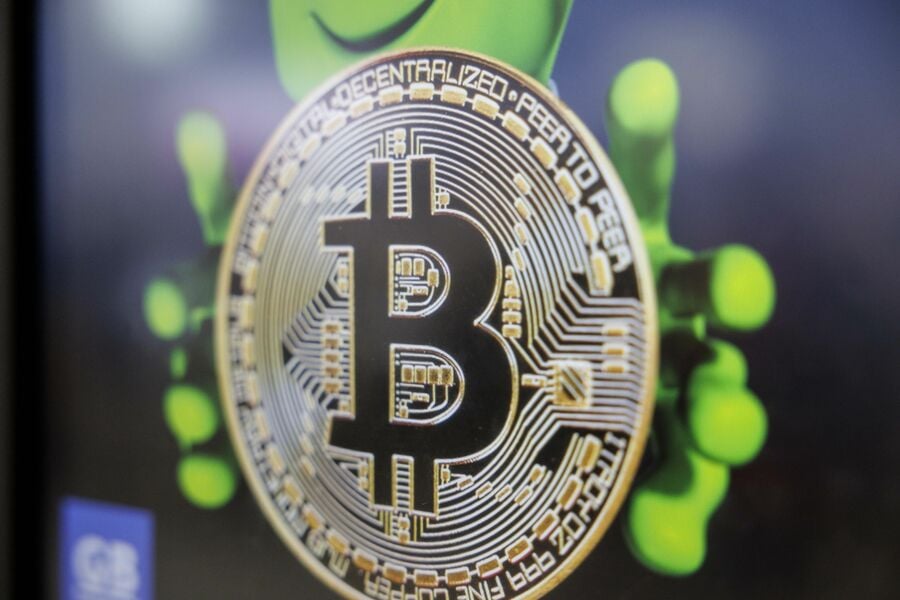

Cryptocurrency fans believe it's more than just a coincidence that bitcoin has been rallying in the wake of the recent troubles hitting traditional banking institutions.
While a string of regional banks have seen their stock prices decline over the past week by as much as 70%, the price of bitcoin has jumped by nearly 32%.
For the Digital Assets Council of Financial Professionals, the timing couldn’t be better for rolling out its expanded certification for blockchain and digital assets.
Two years after launching the initial certification, DACFP is keeping up with the times by tailoring the education and credentials to areas of emerging interest.
“We’ve discovered about half the people taking the course are not financial advisors,” said DACFP founder Ric Edelman.
According to Edelman, the thousands of people who have taken the virtual courses and earned the certification can be separated into four categories: financial advisors, non-advisor professionals working in the financial services industry, people working in the cryptocurrency industry, and a general category of investors and students.
With that in mind, Edelman said the certification is being expanded to four separate tracks customized for each category.
“It was a big surprise to me, because we created the course for advisors and it’s aimed at practice management issues and estate planning, and regulation and compliance.”
While the expanded market wasn't something Edelman had anticipated, he was expecting to make regular revisions to the virtual certification program to keep pace with the fast-changing crypto space.
“Crypto is evolving so rapidly the course was getting out of date and we had to update it,” he said. “Two years ago, NFTs hadn’t been invented yet, the metaverse was unheard of, and the FTX debacle hadn’t occurred.”
Chris Baker, director of business development at Fidelity Digital Assets, is seeing increasing demand among advisors for education around crypto even if those advisors are not ready to allocate clients in that direction yet.
“While some advisors remain skeptical of the digital assets space, many continue down the path of educating their teams and finding platforms that suit their clients’ demand,” Baker said. “Advisors recognize that the client demand for exposure to digital assets is not going away despite price fluctuation, yet many are surprised that it’s not just their younger clients, but clients across the generational spectrum that are seeking exposure to digital assets.”
Edelman said that the certification changes weren't pegged to the unfolding issues facing the banking industry, but that he expects the crypto space to benefit from the high-profile failures of Silicon Valley Bank and Signature Bank, among the string of challenges facing traditional banks.
He cited the ongoing banking crisis among the reasons for the rally in the price of bitcoin, which is up 50% so far this year, including a 32% spike over the past week.
“It is shocking to people that you can suddenly wake up and find that your bank account is gone, your deposits are frozen or completely gone,” Edelman said. “People are starting to ask the question if bitcoin is now safer than banking. This tech represents the newest form of money on a global scale. You could argue that that attitude is a little whacky, but it is nonetheless contributing to the price of bitcoin over the past week.”
Tyrone Ross, co-founder and chief executive of Turnqey Labs, also believes the rally in digital assets is linked to the unfolding banking crisis.
“It’s mainly because folks are looking at what is happening with the banks,” he said. “Based on conversations I’ve had, people are realizing what all of us have been proselytizing about money being stuck in banks, real-time payment systems, and needing a third party for basic transfers of money. People are starting to wake up and realize what we’ve been banging the table about.”
Beyond the events of the past week, Edelman said cryptocurrency is riding a longer-term trend that includes “a massive amount of development in the technology because businesses are discovering it more advantageous than ever to integrate blockchain into business practices.”
“And governments around the globe are advancing their efforts of adoption around the technology,” he added. “There’s an arms race around the world to embrace crypto because governments recognize this technology creates a lot of high-paying green jobs.”
Jack Neureuter, research analyst at Fidelity Digital Assets, attributed the strength of bitcoin to a “narrative shift in recent months regarding the reason why institutional investors are looking at bitcoin and digital assets as an investment to potentially include in their portfolio.
“Last year, the elevated levels of correlation between equity markets, particularly growth and technology, and crypto was clear and drove institutional investors to view bitcoin and other digital assets as high-risk, technology-like investments,” Neureuter added. “Year-to-date, we’ve observed a breakdown in this correlation and notable positive price action in alternative store-of-value assets, like gold, alongside strong relative performance for bitcoin versus other digital assets.”

While industry statistics pointing to a succession crisis can cause alarm, advisor-owners should be free to consider a middle path between staying solo and catching the surging wave of M&A.

New joint research by T. Rowe Price, MIT, and Stanford University finds more diverse asset allocations among older participants.

With its asset pipeline bursting past $13 billion, Farther is looking to build more momentum with three new managing directors.

A Department of Labor proposal to scrap a regulatory provision under ERISA could create uncertainty for fiduciaries, the trade association argues.

"We continue to feel confident about our ability to capture 90%," LPL CEO Rich Steinmeier told analysts during the firm's 2nd quarter earnings call.
Orion's Tom Wilson on delivering coordinated, high-touch service in a world where returns alone no longer set you apart.
Barely a decade old, registered index-linked annuities have quickly surged in popularity, thanks to their unique blend of protection and growth potential—an appealing option for investors looking to chart a steadier course through today's choppy market waters, says Myles Lambert, Brighthouse Financial.
